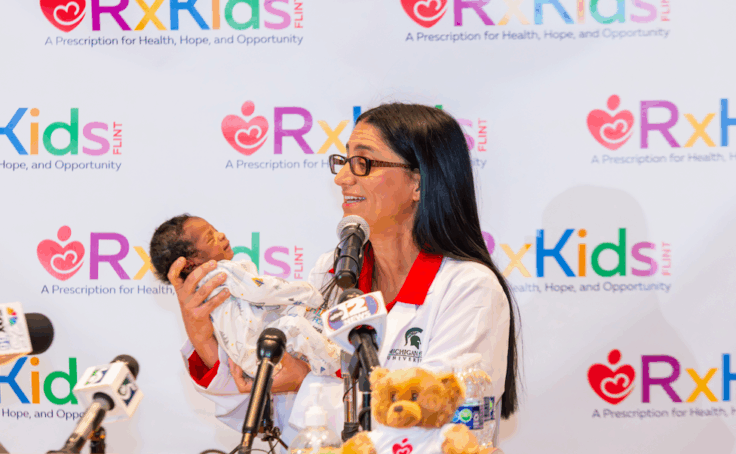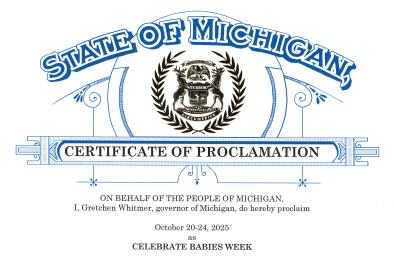Every baby’s development begins with the foundation shaped by their relationships with family and caregivers.
When parents are stressed by financial insecurity, that stress often negatively affects pregnancy outcomes, newborn health, and the earliest stages of infant and early childhood mental health. Reducing that stress by ensuring families have the resources they need strengthens the conditions for babies to thrive.
In Michigan, an innovative program called Rx Kids is showing how bold, evidence-based investments can shift those conditions in measurable ways. Within months of launching, the community-wide prenatal and infant cash program was linked to an 18% drop in preterm births, a 27% reduction in low birthweight, and a 29% reduction in NICU admissions compared to the previous year and similar Michigan cities. This prevented nearly 60 hospitalizations annually and generated an estimated $6.2 million in health care savings.
Building on this success, the FY 25–26 state budget in Michigan includes $270 million to be invested in Rx Kids, the state’s cash, no-strings prescription program for families during pregnancy and infancy. The funding will be used over three years to expand and sustain this groundbreaking model.
We are proud to highlight this initiative because it demonstrates a powerful truth: breaking cycles of poverty measurably improves early development and reduces costly consequences for society. For us, the message is clear—when families have the resources they need from the very beginning, babies and communities flourish.







